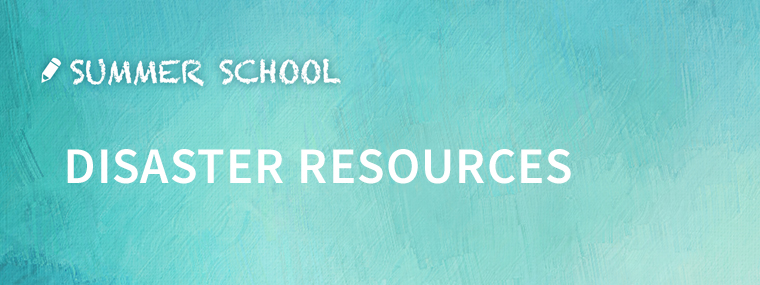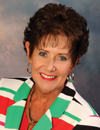
Summer School: Disaster Resources
Course: 9628123
1 HOUR in HR or ELE

The following article, along with additional online content, has been approved for one hour of continuing education by the DBPR. All of our readers are welcome to apply for one CEU hour at no cost, and FCAP members have access to all five CEU hours. In order to appropriate the hours, read the articles and then go to www.fcapschools.com/ceu and click on the appropriate course number to complete the process.
 What Does Summer Mean to You?
What Does Summer Mean to You?
By Ashley Dietz-Gray and Dan Tiernan / Published July 2016
Summer means many things to many people. For kids, it’s the end of the school year; for families, it’s a time for vacation; but for most Floridians, it is also the start of the dreaded hurricane season. June 1 marks the beginning of the season, which goes until November 30. Community associatio n managers and community association board members should prepare their communities for hurricanes.
n managers and community association board members should prepare their communities for hurricanes.
• Ensure that the residents know exactly where to go and what to do in case of an emergency.
• Post an evacuation route in the hallway, elevator, or gatehouse to make sure everyone is fully aware.
• Distribute a packet containing contact information for the association manager, management company, and the local police and fire departments.
• Also, include addresses and phone numbers of local shelters and food stores.
• Get trees trimmed and greenery pruned, so that they don’t create a safety hazard in strong winds.
• Check that all outdoor furniture is safely stored, storm shutters are installed, if needed, and the gas main is turned off.
• In addition, check up and review insurance policies.
• Plan out what the responsibilities are of the board, staff, and owners during the storm.
Fires are also not uncommon in Florida. If an emergency such as a fire happens suddenly in your HOA or condominium association, what are you supposed to do? The Florida Fire Prevention Code is a valuable resource, especially for new associations.
• Be certain that all occupants are safe following a fire.
• Evacuate anyone who is near the fire and could be injured by the fire or smoke inhalation.
• If necessary, barricade or block off the affected area to avoid further damage to people or property.
For example, if a fire burns a good majority of the roof of a clubhouse, you will want to cover it with a tarp to prevent further damage from rain. Your insurance policy will cover you for emergency repairs to secure the premises, such as boarding up all entrances to protect the property from water or vandals. You should contact your insurance agent immediately following the fire to place them on notice, and do not make any permanent repairs until they have had the opportunity to inspect the damages. You should contact your attorney and let him/her know, particularly if you have any liability concerns. Be prepared to work with the insurance company on the cost of restoration. You are entitled to get an independent estimate of damages from a public adjuster to compare to the insurance company numbers. You should consult with a public adjuster as soon as possible, but the timing of when to hire is tricky. You may want to wait until after receiving your quote from the insurance company’s adjuster. Don’t just accept what the insurance company offers. The public adjuster will fight on your behalf to get more money for your claim.
Ashley Dietz-Gray and Dan Tiernan are with Campbell Property Management at (954) 427-8770, www.campbellpropertymanagement.com.
 Create A Plan Before Disaster Strikes
Create A Plan Before Disaster Strikes
By Crystal Clark / Published July 2016
The 2016 hurricane season is here, and with it homeowners are preparing their homes and communities for potential natural disasters. The threat of unfavorable weather, fires, contamination, HAZMAT, floods, and sinkholes is often uncontrollable; but an excellent security service provider should encourage proactive measures wherever possible. Creating a plan ahead of time will not only help during a time of crisis but will also aid in restoring your community back to normal. Sometimes being prepared can also mean incorporating the help of a third-party service provider, such as professional cleaners, maintenance services, or technological support. These providers can help in creating a safe environment on a daily basis but also will be there to help restore the community and neighborhood back to normal after a major storm or disaster. Consider asking these questions to your security providers ahead of time:
• Does your community and security provider use backup power solutions, and if so, what are they and what do they control?
• How long can the security provider maintain monitoring at a location that has been hit directly?
• Does the security provider have a contingency solution if their place of business experiences severe physical damage?
• For access control solutions, do the doors or gates fail open or fail safe (locked)?
Maintaining effective communication with community residents and vendors will assist in coordinating emergency activities to implement the recovery plan. During seasons that characteristically have more severe weather and rain, keep common areas and lawns free of debris, and when possible, secure pool equipment, such as lounge chairs and umbrellas. Having a directory of emergency contacts to reach after a natural disaster or accident will be helpful in delivering assistance to homeowners. Establish a plan for on-site employees that clearly specifies when it is necessary to leave the premises as well as identifies when they should return to the neighborhood. Several retailers offer fireproof storage, which is a valuable investment to store important documents and keepsakes. In addition to important documents, backing up all virtual data to a cloud-based system or hard drive can be a quick and fairly easy step to implement.
Communities protected by an excellent security service provider can rest assured that if a disaster strikes, their security provider can recover quickly, thanks to advanced planning and thorough testing. Regardless of who protects your community, take the time to ensure you and your neighbors are prepared for whatever natural disasters or unfortunate events may occur.
Crystal Clark is with Envera Systems at (855) 380-1274, www.EnveraSystems.com.
 Mold Versus Mildew
Mold Versus Mildew
By Gary van der Laan, CFCAM, CMCA, AMS, PCAM / Published July 2016
Mold and mildew are two words that are used interchangeably in our culture; however, they are not the same thing. Although both are forms of fungi that grow in moist, warm locations, they differ in the surfaces on which they grow and in appearance. Mold often appears fuzzy or slimy, depending on the type, and comes in various colors. When seen in a home, it may appear to be irregularly shaped spots of black or gray, often in a cluster. Mildew is most commonly found on plants or agricultural products, such as fruits and potatoes. It is also commonly found in bathrooms, where the moist conditions offer an ideal environment for growth.
Both come with serious health and property risks if left untreated. Headaches, asthma, coughing, and irritation of the eyes or throat may occur as a result of breathing in these toxins. Mold can also rot the surface on which it is growing if given enough time. Keeping areas dry and well ventilated are the most important preventive measures for eliminating mold and mildew. Any agricultural product that has traces of mold should be thrown away and repurchased. When treating mold/mildew, the most common myth is that bleach will kill it. This is not true in many cases.. However, most cases of mold can be treated with an industrial mold/mildew remover. If there is significant mold growth, a professional may need to clean the space and repair any damage.
Gary van der Laan, CFCAM, CMCA, AMS, PCAM, is with Leland Management at (888) 465-0346, www.LelandManagement.com.
 Hurricanes and Tornados—Disaster Preparedness Best Practices
Hurricanes and Tornados—Disaster Preparedness Best Practices
By Betsy Barbieux, CAM, CFCAM / Published July 2016
Editor’s Note: This article has been shortened. To read the article in its entirety, visit www.flcaj.com/pdfdocs/relations%201208.pdf.
Boards need to be constantly reminded to keep the main thing the main thing. What is the main thing? It is the association’s mission statement. Every association has basically the same mission statement:
To maintain and protect the value of the property by enforcing the documents and rules and regulations while maintaining a spirit of community.
Following are some of the best practices used by managers over the past several years. These managers were privileged to have forward-thinking boards that took the high road and commissioned their managers to make plans for the foreseeable disasters that could happen on their property.
Hurricanes and Tornados
• Establish and maintain good relations with emergency services
• Pre-contract with vendors each year with details on how soon they will arrive after the “all clear”
• Predetermine a staging area for debris
• Pre-contract for dumpsters for debris
• Purchase battery powered walkie-talkies for communicating to employees and vendors when clean up begins (cell phones and Nextel may not work)
• Use the association’s telephone voice mail outgoing message to give information to residents who will undoubtedly be calling you (you do not need to be on the phone talking to them now)
• Use the association’s website to keep evacuated residents informed (designate a volunteer to do this)
• Inform residents ahead of time what you and your staff will and will not be doing for them before and during the storm event
• Encourage residents to make their own preparations and evacuation plans and to have their own NOAA radios
• Stock a closed utility trailer with emergency supplies, recovery equipment, and tools such as first aid kits, chainsaws, ladders, rope, tarps, tape, hammers, flashlights and lanterns, extension cords, squeegees, mops, gloves, boots, rain slickers, etc.
Be safe rather than sorry. Prepare for the crises and disasters that could happen at your property. But remember to keep the main thing the main thing.
Betsy Barbieux, CAM, CFCAM is with Florida CAM Schools at (352) 326-8365, www.Florida CAMSchools.com.

